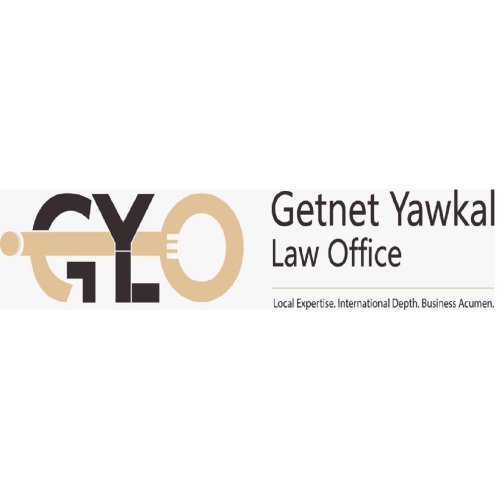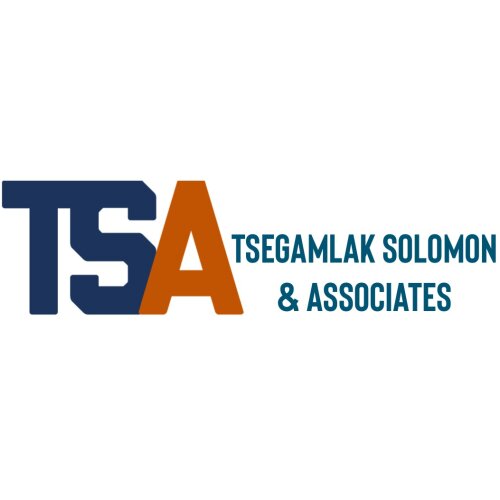Best Structured Finance Lawyers in Ethiopia
Share your needs with us, get contacted by law firms.
Free. Takes 2 min.
Or refine your search by selecting a city:
List of the best lawyers in Ethiopia
About Structured Finance Law in Ethiopia
Structured finance refers to complex financial instruments offered to borrowers who do not qualify for standard loans. In Ethiopia, structured finance is an emerging area influenced by the nation's ongoing financial sector reform and efforts to attract both local and foreign investment. Traditionally, Ethiopian finance law has focused on conventional banking, but as the economy diversifies, structured finance instruments such as securitization, syndicated loans, and asset-backed securities are becoming increasingly relevant. The regulatory environment is evolving, with the government working to foster market innovation while protecting investors and maintaining financial stability.
Why You May Need a Lawyer
Engaging in structured finance transactions involves significant legal complexities. Whether you are an investor, a company seeking finance, or a financial institution, there are many scenarios where legal support is crucial:
- Structuring or negotiating complex loan agreements
- Participating in syndicated loans involving multiple parties
- Issuing or investing in asset-backed securities
- Ensuring compliance with local banking and securities regulations
- Resolving disputes arising from structured finance arrangements
- Navigating cross-border financing transactions
- Understanding the tax implications of structured products
- Dealing with insolvency or restructuring scenarios
A lawyer with expertise in structured finance can help you avoid costly mistakes, ensure your contracts are enforceable, and protect your interests at every stage.
Local Laws Overview
Ethiopia’s structured finance landscape is influenced by several key legal and regulatory pillars:
- Banking Business Proclamation: Sets the foundation for all banking operations, including loan syndications and capital adequacy requirements.
- Capital Market Proclamation: Outlines the regulatory framework for issuing and trading securities and is central to structured finance transactions such as securitization.
- Investment Proclamation and Regulations: Governs foreign and domestic investment, affecting structured products offered to or by investors.
- National Bank of Ethiopia (NBE) Directives: The NBE issues directives regulating permissible banking operations, risk management, and reporting requirements for financial institutions involved in complex financings.
- Commercial Code: Contains critical provisions governing contracts, insolvency, and secured transactions.
While specific provisions on structured finance may not be detailed in every law, the combination of these regulations and ongoing reforms continually shape best practices in this field. Professional legal advice is essential to interpret these statutes in the context of complex, multi-party transactions.
Frequently Asked Questions
What is structured finance?
Structured finance is a set of financial arrangements that use complex legal and financial strategies to meet unique financing needs, often involving pooling assets, creating securities, or arranging syndicated loans.
Is structured finance common in Ethiopia?
Structured finance is gaining traction in Ethiopia, especially with the introduction of new capital markets regulations and growing interest from international financial institutions. However, it is still considered a developing field compared to more established markets.
Who regulates structured finance activities in Ethiopia?
The National Bank of Ethiopia (NBE) and the Ethiopian Capital Market Authority are the primary regulators overseeing banking and securities activities related to structured finance.
Can foreign investors participate in Ethiopian structured finance transactions?
Yes, foreign investors can participate in structured finance, but they must comply with investment and capital market regulations that may require government approvals and adherence to local currency rules.
What legal challenges might arise in structured finance deals?
Common challenges include regulatory uncertainties, enforceability of contracts, cross-border remittance restrictions, tax implications, and differing interpretations of local laws.
Are there specific laws about securitization in Ethiopia?
While there is no single securitization law, recent capital market proclamations set a foundation for asset-backed securities, and additional regulations are being developed to support such transactions.
Do I need approvals to engage in structured finance activities?
Yes, most structured finance transactions, especially those involving public offerings of securities or foreign investment, require approval from the relevant authority such as the Capital Market Authority or the NBE.
How can disputes be resolved in structured finance contracts?
Disputes are typically resolved through local courts or arbitration, depending on the agreement between the parties. International arbitration clauses may also be included in cross-border agreements.
What due diligence is required in structured finance?
Due diligence usually includes reviewing asset quality, counterparty risk, regulatory compliance, and financial institution standing to ensure all legal and financial obligations are met.
How does insolvency affect structured finance arrangements?
Insolvency can trigger early repayment clauses, asset seizure, or termination of a transaction. Ethiopian insolvency laws and the Commercial Code govern how claims are prioritized and how assets are distributed.
Additional Resources
People involved in structured finance in Ethiopia can benefit from the following resources and institutions:
- National Bank of Ethiopia (NBE): The central regulator for banks and financial institutions.
- Ethiopian Capital Market Authority: Regulates securities markets and related structured finance products.
- Ministry of Finance: Involved with investment and financial sector policy.
- Ethiopian Investment Commission: Provides information and guidance for foreign investors.
- Ethio Chamber of Commerce: Offers business and legal networking, seminars, and reference materials.
- Legal professional associations: Such as the Ethiopian Lawyers Association, can help find qualified finance lawyers.
Next Steps
If you need legal advice or assistance with structured finance in Ethiopia, consider the following steps:
- Identify your specific needs or the type of transaction you wish to pursue, such as loan syndication, securitization, or asset-back financing.
- Gather all relevant documentation, including financial records, contracts, regulatory approvals, and investment information.
- Research and select a legal professional or law firm with expertise in structured finance and a strong understanding of Ethiopian laws and regulations.
- Arrange a consultation to discuss your objectives and ensure you understand the legal and regulatory requirements related to your transaction.
- Work closely with your lawyer to navigate negotiations, draft documentation, ensure compliance, and address any legal or regulatory hurdles.
- Continue to monitor legal and market developments to ensure your structured finance arrangements remain compliant over time.
Seeking early legal guidance can save significant time and resources and help you achieve favorable outcomes in the complex and rapidly evolving field of structured finance in Ethiopia.
Lawzana helps you find the best lawyers and law firms in Ethiopia through a curated and pre-screened list of qualified legal professionals. Our platform offers rankings and detailed profiles of attorneys and law firms, allowing you to compare based on practice areas, including Structured Finance, experience, and client feedback.
Each profile includes a description of the firm's areas of practice, client reviews, team members and partners, year of establishment, spoken languages, office locations, contact information, social media presence, and any published articles or resources. Most firms on our platform speak English and are experienced in both local and international legal matters.
Get a quote from top-rated law firms in Ethiopia — quickly, securely, and without unnecessary hassle.
Disclaimer:
The information provided on this page is for general informational purposes only and does not constitute legal advice. While we strive to ensure the accuracy and relevance of the content, legal information may change over time, and interpretations of the law can vary. You should always consult with a qualified legal professional for advice specific to your situation.
We disclaim all liability for actions taken or not taken based on the content of this page. If you believe any information is incorrect or outdated, please contact us, and we will review and update it where appropriate.
Browse structured finance law firms by city in Ethiopia
Refine your search by selecting a city.

















